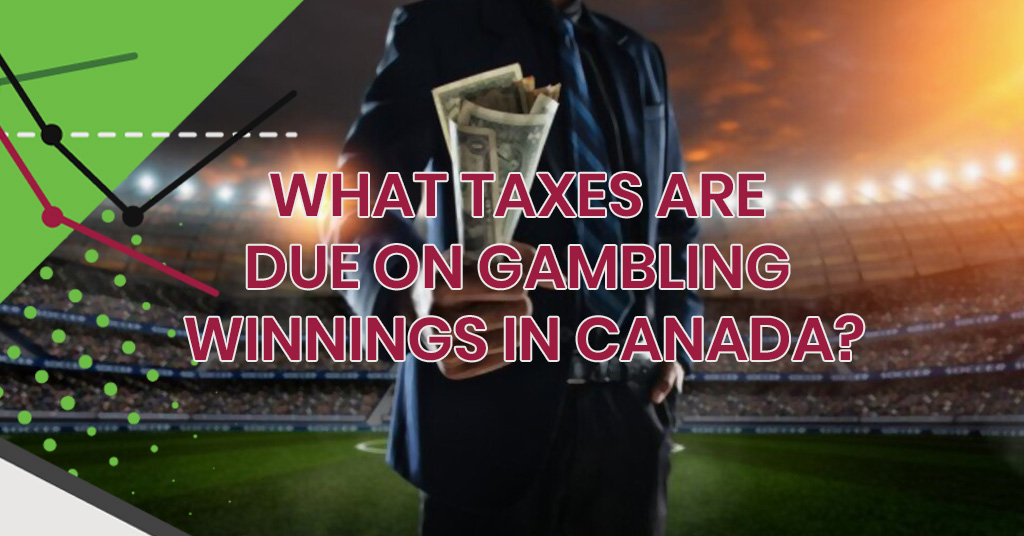If you’ve spun the reels on your first jackpot and won big, you’re probably dreading finding out about the gambling tax in Canada. Luckily, when it comes to gambling winnings tax — there is none. At least not for recreational gamblers. As long as you’re not gambling for a living in Canada or creating a business out of gambling activities, you won’t have to pay taxes.
Let’s dive deeper into the question and find out all there is about gambling winnings in Canada.
Who Might Be Taxed?
The Canadian law regarding gambling winnings is quite clear — you don’t have to pay taxes if you are not a professional gambler. You do not have to declare your gambling winnings when filing your taxes as defined by paragraph 40(2)(f) of the Income Tax Act. The government considers a few key factors when determining whether someone should pay taxes on gambling or not, i.e. whether that person makes a living out of gambling winnings.
What are those factors?
- Professional gamblers — Gambling and winning a lot does not make you a gambling pro. Canadian law states that running a gambling operation and/or using a systematic application of skill to make a profit classifies you as a professional gambler. It’s important to note the skills part of this statement — that’s why poker players are more often considered pros than sports bettors. Also, the government considers whether gambling winnings are a person’s only source of income.
- Occasional gamblers — Recreational or non-professional gamblers do not have to pay gambling winnings tax according to Canadian law. Regardless of how much they win and how often they play, this holds true as long as they are not making a living out of gambling. What’s more, the government is reluctant to classify people as professionals unless it’s a clear-cut case. That means most recreational gamblers don’t have to worry about paying taxes.
What Gambling Forms Are Taxable?
To make matters a bit clearer, let’s see which gambling forms are taxable for professional players. As we’ve mentioned, all of these gambling forms are not taxable for occasional gamblers.
- Land-based casinos
- Online casinos
- Sports betting
- Bingo
- Horse racing
- Poker
- Pari-mutuel betting
- Fantasy sports
- Esports
However, note that some forms of gambling are not taxable, even for professional gamblers. If you’re thinking of going pro, you should have the following in mind:
- Lottery
- Raffles
- Pull tabs
- Scratch’n win
|
Form of Gambling
|
Tax Status for Recreational Gamblers
|
Tax Status for Professional Gamblers
|
|
Land-Based Casino
|
Non-Taxable
|
Taxable
|
|
Online Casino
|
Non-Taxable
|
Taxable
|
|
Sports Betting
|
Non-Taxable
|
Taxable
|
|
Bingo
|
Non-Taxable
|
Taxable
|
|
Lottery
|
Non-Taxable
|
Non-Taxable
|
|
Horse Racing
|
Non-Taxable
|
Taxable
|
|
Poker
|
Non-Taxable
|
Taxable
|
|
Pools/Pari-Mutuel
|
Non-Taxable
|
Taxable
|
|
Raffles
|
Non-Taxable
|
Non-Taxable
|
|
Pull-Tabs
|
Non-Taxable
|
Non-Taxable
|
|
Scratch ‘n Win
|
Non-Taxable
|
Non-Taxable
|
|
Fantasy Sports
|
Non-Taxable
|
Taxable
|
|
eSports
|
Non-Taxable
|
Taxable
|
What About Non-Cash Winnings?
In case you forgot, gambling winnings can sometimes be non-cash. Players might receive a vacation or car from an operator as a gambling compensation or reward. So, what about these winnings? Are they taxable? No, all non-cash winnings are not taxable. Players will not have to worry about reporting a five-star hotel experience when doing their taxes if they win it playing poker.
Are Gambling Losses Tax-Deductible?
As you might have guessed by now, the answer to this question depends on the type of gambler you are. Namely, if you are a recreational gambler, your gambling losses are not tax-deductible. This is a fair practice as Canadian law does not tax your gambling winnings either.
On the other hand, you can write off your gambling losses if you are a professional gambler. Again, this is quite reasonable as they are paying tax on their winnings. Plus, like other legitimate businesses, they can deduct other associated expenses like tournament fees and travels.
Online and Offline Gambling
Some players might wonder about the differences between online and offline gambling. However, the Income Tax Act doesn’t make a distinction between these two gambling types. It’s safe to say that the same rules apply to both forms of gambling. So, recreational players are not obligated to pay taxes while professional players are.
Gambling in Different Canadian Provinces
If you think different Canadian provinces have different gambling laws regarding gambling, you’re right. Each province has different gambling laws that apply to gambling and casinos. However, the same rules apply regardless of where you live in Canada when it comes to paying taxes.
Gambling in Different Countries
The Canadian law has no bearing on gambling in other countries. For example, if a Canadian citizen gambles in the USA, they will need to pay taxes on their winnings. That’s why it is also essential to understand the rules surrounding taxes in other countries.
The good thing is that Canada and the USA have an understanding when it comes to gambling. Although the IRS taxes Canadians who win gambling money in the States, you can get it back if you prove gambling expenses or losses. Naturally, you’ll need to go through some steps before getting your money back. These include applying for a US tax number and filling out all the necessary forms.

